The Turtle & the Fox
Debora Kuan
Take him for all in all, I shall not look upon his like again.
-Shakespeare, Hamlet
My first encounter with my colleague Ivan Fox’s house in Trenton was a small, late-summer dinner party. It was a balmy dusk. Another coworker, who lived a few blocks away from me in Princeton, picked me up at my apartment. As we drove, the ivy-swathed Gothic architecture and Tudor storefronts of our university town gradually gave way to stucco municipal buildings, one-room churches, chain-link fences, hand-painted signs, and rundown Victorian residences. On Ivan’s street, a group of black teenaged boys were standing in the road; they peered at us through the windshield, and then parted to let our car through.
The house stood at the corner of an intersection with a dead-end street, one side of it almost completely obscured by a 13-foot-high wall of overgrown rhododendrons. Through its open windows, Vivaldi was blasting.
When we went in, Ivan was in the kitchen, surrounded by trays of bell peppers, chicken paté, and sliced baguettes. He briefly introduced us to a middle-aged man, Sherman, who had cleaned the house that afternoon and was on his way out. Later, I would learn that Ivan often hired people in his neighborhood for small jobs around the house, a reputation that occasionally brought uninvited strangers strolling through his unlocked doors, asking for money. This was also how he had come to acquire some of his secondhand china—someone had simply walked in, offering a stack of it for sale.
As Ivan cooked, we wandered. The house had the deep, umber decadence of a Caravaggio still life: dark chestnut doorframes, tarnished silver trays of over-ripened fruit, tea-stained china, an extensive collection of seashells, reading glasses strewn everywhere (“ah!” Ivan would later exclaim, spying a wet pair, when we sat down to the backyard table by the pond he’d made, “my glasses!”). Lining the walls were heavy tapestries and dusty brass sconces. The keyboard of a rosewood grand piano, which had been removed from its frame, hung in the living room. At the foot of the stairs, an Arts-and-Crafts grandfather clock with a hammered brass face bonged the hour. But the most exciting discovery was to be made in the downstairs bathroom: a large turtle in the porcelain tub, its head pointed toward the drain.
“Ivan! You have a turtle?” I said, rushing out of the bathroom.
He looked up from his cookbook and smiled, a look of deep satisfaction. He did not answer.
I felt foolish. As soon as the words left my mouth, I realized that the turtle was stuffed. I slouched back to the bathroom and studied the reptile’s uncanny likeness to life. The A Rebour air of the house made even the most far-fetched ideas seem plausible.
*
At work, Ivan’s cubicle was around the corner from mine, about ten paces away. We were the unprestigious and thankless scribes of American education’s most preferred whipping child, the standardized test. Ivan had been hired while teaching at Princeton in 1996, at a time when the company needed philosophers to work on the GRE Reasoning test. When the program became defunct, he, along with a handful of others, moved to the English Language Learning group to work on the TOEFL/Test of English as a Foreign Language.
Every morning, he arrived in the office with his gray curls wet and matted from his daily 6 a.m. swim. Even at sixty, he was likely in better shape than anyone in our entire building; there was no ounce of fat to be found anywhere on his frame. His lunch every day was a large aluminum bowl filled with raw vegetables and chickpeas, doused with balsamic vinaigrette, and a few large squares of matzoh. His tea came in muslin bags. He was tall, mostly legs, his olive skin deeply lined from a history of smoking, his nose long, hawkish, and sometimes wet, seemingly without his knowledge. His fingernails were encrusted with dirt from gardening, and his Oxford shirts often stained.
Ivan was always available, genial, and generous, happy to discuss anything. He did not have bad moods. I thought of him as a person governed entirely by reason, like the equine Houyhnhnms in Gulliver’s Travels, immune to emotional vicissitudes, in himself as well as others.
Once when I spied a copy of Michael Ondaatje’s The English Patient on Ivan’s desk, I expressed my shock noisily. He swung around in his chair. “A friend lent it to me. Why? Do you think I won’t like it?” he asked. “No, you won’t, you absolutely won’t,” I said, laughing. Before I could tell him, “Ondaatje is a High Romantic,” he cut me off, saying, “Because, if it’s in any way about the human condition, I’m not interested!”
Being cut off by Ivan was not unusual. Nor was being talked to after you had ostensibly ended the conversation and walked away. He had a tendency to pontificate—loudly, with theatrical modulation in pitch—to the point of your exhaustion. To make matters worse, it was often impossible to hold your own against him in an argument. A female colleague had once fled from him in tears. Mary, the head of our team, who had known him for an age, however, took him less personally. She once pounded on the conference room table, after repeated attempts to quiet him politely, and shouted, “Enough, Ivan, shut up!” to little avail. His skin was thick.
Ivan used to have lunch every day with a friend of his, a fellow philosopher in our department, until the friend left the company for another job. They would eat in the small library between his and my cubicles. Our whole side of the floor could hear them shouting their points and counterpoints behind that closed door, hashing out what I can only guess were issues of metaphysics and epistemology. Later, people would complain about the state in which they left the library after their infamous lunches—stray food on the chairs, tables, books.
To the gratification of many, Ivan’s unsanitary ways did not go without consequence forever. After nearly a decade in his cubicle, expired food items, soil, spilled loose tea, and other litter resulted in an official health hazard warning from the housecleaning staff. They tacked the notice on his doorway and strung tape over the cubicle. Unfazed, Ivan recruited a loyal intern to clean it.
When he reviewed my sets, invariably killing nine out of 13 of my questions and sending me back to the drawing board, he would stand at the doorway of my cube and present my defeat to me in a sheaf of printed pages, creased, stained, and scribbled over in heavy pencil chicken scratch. Then he would pull up a chair and go over with me what was wrong with, indeed, everything. He didn’t believe in leaving well enough alone; he wanted perfection.
If at times exasperating, that extra work we did together solidified our friendship. I liked the familial way he would walk into my cube, even if I was talking to someone else, and give me slices of his poppyseed bread or boxes of Kusmi tea. I liked that he would plop himself down on my chair, cross his legs, remove his glasses, and pick up where we had left off the day before. I remember one year returning from the company’s Annual Asian and Pacific Islander Festival with some Chinese calligraphy I had written on rice paper, which I gave to him.
“What does it say?” he said, tacking it up on his bulletin board.
I pointed to the two characters, hao ren. “Good man,” I said. “That’s you.”
*
Ivan had bought his house at the corner of Beechwood and Stacy in a state of disrepair for $110,000 at the end of 2002. One of the foundational beams was rotted. The electrical wiring was a mess. The kitchen was barely large enough to fit three people. But since it was a classic Arts and Crafts estate, and he had apprenticed himself as a carpenter during a hiatus from writing his dissertation at Harvard, he had hoped, with the help of his brother, an electrical engineer, that they could fix the place up.
He was shocked when he saw the deed. It asserted that the house had been built in 1930. “Built with gas fixtures—in 1930?” he said with brassy incredulity. “It also had electricity. In the hallway, there is this elaborately ensconced box, it has a brindle oak frame with decorative wrought iron bosses and a clear glass panel, and what was this? Was it a shrine or something? No, it was actually the original fuse box! But this was at a time when the mere possession and the mere novelty, and indeed the sophistication and so forth, of having electricity was something not to be hidden in a closet but to be given this forefronted exhibition!” The repairs that Ivan and his brother made were so extensive that, at one point, his house insurance got cancelled. Someone had looked in the window, seen the kitchen gutted and the living room in disarray, and figured no one could be living there, especially without heat in the dead of winter. He had had to call up his insurance company and assure them otherwise. The picture he sent me from this renovation period was of him wearing goggles, a gas mask, and a lavender crocheted hat with a chin tie, standing on a ladder and wielding an electric saw.
Of all the rooms in the house, however, it was his work in the kitchen that he was perhaps most proud of. He designed it with two wooden arches covered in stucco and elevated countertops to accommodate his height. He built the kitchen cabinets at unnecessarily complicated angles—in one place, resulting in an L-shaped drawer—simply as a construction challenge. His ingenuity is in evidence elsewhere too: The bulk of the furniture in his living room was made from deaccessioned dormitory furniture from the universities at which he had taught. A working glass chandelier hangs from a tree in his yard.
But, for a person who enjoyed throwing himself into complex problems and challenges, simply for the sake of it, he always seemed to me oddly incurious about digital artisanship. He did not own a television, and for a while, he did not own a working phone. Even when his phone did ring, he tended not to answer it. He referred to DVDs as “the latest ones” and VHSes as “the book-sized ones,” though he did not own either. When his computer at work would crash, he took great pleasure in saying that he and his computer were simply “trying to reconcile their personal differences.”
*
“Where’s your joie de vivre?” he asked me one morning, as I shambled to the coffee pot, brooding over something or other, It was a simple question, and I supposed, a more elegant way of asking me to smile—a prodding I normally despise, since it tends to be a gendered and patronizing request. But Ivan was not asking me to smile. He was not an old man needling a young woman in order to get a pretty expression out of her. No, his question was far more genuine than that, as was his use of the mot juste: joie de vivre, that quality of aliveness which he had in such abundance.
It was this aspect of his character—this joie de vivre—I suspect, that kept him from viewing his career at ETS as a failure of his original ambitions. He certainly didn’t see it this way. Instead he felt that he wasn’t suited to being an academic—“all the committees, networking, finding jobs for one’s students,” he wasn’t good at that. He was also, he fully admitted, unproductive in terms of publication. “I already had a sufficiently high opinion of myself so I wasn’t interested in making a name for myself,” he cackled. “Anyway, one doesn’t know what one’s destiny is. Now I see I was meant to be a test developer!” One of his favorite stories to tell was about how, as a kid, he had designed a test for his teacher to take. He had figured, if the students had to take tests, why shouldn’t she? Afterwards, he was surprised to see that she had answered all his questions correctly.
Ivan threw himself into the life of our department and made it his business to humanize its corporate culture. For Purim, he used to bake hamantaschen—poppyseed and prune—and deliver them to everyone’s cubicle. At the end of the summer, he organized the thank you picnic for the summer interns, cooking the food and directing games of Corn Hole—he found the scatological implications hilarious. And when I left the company for a new job in New York, it was Ivan who volunteered to throw my farewell dinner party at his house.
*
Last year, when I published my first book of poems, I emailed Ivan to let him know. He had always been supportive of my writing. He had come to my readings, and he had always wanted to hear what I was working on. Once, to my infinite mortification, he had emailed our entire department of over eighty people when I told him in private that I had been runner-up in a first book contest. So when I wrote to him and I didn’t hear back, I was surprised. Perhaps our rapport had changed now that I hadn’t seen him in so long, now that I no longer worked with him, I thought. But it still seemed odd. After all, when I had first written him with the news that my book was accepted for publication, he had written me back immediately saying how delighted he was and how he finally had a good reason to open the bottle of champagne I’d given him.
When I visited the office some time later and discovered that he had mysteriously not been to work for a month or more, I began to worry. I asked the people he worked with. I asked our mutual friend Paul, a historian in the social science department, who was one of Ivan’s closest friends—the two of them having started their jobs on the same exact day in 1996. Paul brushed my questions off nonchalantly, saying, “Oh, you know Ivan, it could be anything.” I let his insouciance persuade me that everything was okay, even though another part of me wondered why he, being such a good friend, wasn’t more concerned. In my mind, if Ivan were out on sabbatical or taking some kind of extended trip, surely he wouldn’t keep it a secret. There wouldn’t be any reason to. It could only be something bad—that was more in line with his independent and stubborn character, keeping people from making a fuss over him, or worse, from trying to lend a helping hand.
My intuitions were correct. Not long after I saw Paul and his wife for her birthday and asked about Ivan again, with no answers, I got a call from another friend of mine. It was Saturday. I was about to leave on a business trip. I have bad news, she said.
*
The cancer, when the doctors found it, was stage four. It had already spread from his stomach to his esophagus. He had done one round of chemo, on his doctors’ recommendation. It failed. When his oncologist asked him to try another, he refused, having demanded to see what drugs were included and declaring them all poison. In the month before he died, he insisted on one last trip with his family, to Yellowstone, which he had planned prior to the diagnosis.
Paul called me a few days after he’d passed to tell me that yes, he had known all along, in those months of mysterious absence. Ivan had sworn him to secrecy.
Naturally the memorial was held at Ivan’s. I ambled through the house after meeting his siblings. I looked in the bathroom, and my old friend was still there in the bathtub. On a table in the yard, Ivan’s siblings had set out some family photo albums. I flipped through them, looking at pictures of Ivan as a boy, dressed as a cowboy, and as a teenager, so young and handsome, with long curly hair and a set of headphones over his ears, messing around with his friends. Up until this point, I had seen only one picture of Ivan as a boy, which used to be tucked in the frame of his Harvard diploma. It was him, probably nine or ten, with a snake around his neck, regarding the camera with an expression on his face of pure contentment. Here it was again, in the album, next to his school pictures, Christmas and Easter photos, graduation.
Christmas and Easter? I looked up and asked the women who were looking over my shoulder. I thought Ivan was Jewish? An older woman whose name and relationship I never caught told me this wasn’t the case. Ivan had been raised Presbyterian. In fact, no one knew when he had converted to Judaism, or how, because it was only very recently that he had finally told his family he was Jewish. They were still dealing with the shock at the memorial.
This new bit of information certainly threw a wrench into my reading of Ivan’s life choices. The narrative that I had always assumed to be truth was that he was raised culturally Jewish and had, at some point in his adulthood, upon his own explorations, become more observant. Somewhere wrapped in this convenient fiction of mine were also my assumptions about his sexuality—which were, essentially, that, because of religiously motivated reasons, he had never found himself a partner. In my bolder moments, I had asked Ivan about his bachelorhood—I had heard about some relationships and some dates, notably, one very bad one with a woman he’d met at a bris—but for the most part, I felt I had to take his admissions at face value. I had one perfectly articulated sentence, which he had uttered the one—and now only—time he had visited me in Brooklyn. It is written in my notebook: “I am perfectly open-minded about sex until I am confronted with its particulars.”
I asked him once if he had ever wanted children. “God, no!” he’d spat out. He was not interested in taking on the tremendous responsibility, he’d explained, for how another human being turned out, since there was never any guarantee, no matter how conscientious a parent you are. But when we’d had our long discussions about his house, I felt sure I detected a twinge of wistfulness when we revisited the subject. He’d said, if he had had children, he would’ve had to look into the public schools in the area before purchasing his place. Then there was a long pause, untenanted by his usual stutters. “But I don’t, so…” He had trailed off.
*
In the wake of the news, those of us—especially the younger people—who looked up to Ivan as a mentor and scholar and even a kind of father figure tried to respect the fact that we had been in the dark while he was dying. This was what he had wanted, and we would never have begrudged him his privacy or his dignity. But that he maintained up until the end that he did not think he would be missed was a harder pill to swallow. Every one of us had harbored the humble belief that we mattered as much to him as he did to us. This was easy to believe: When his sun shone on you, you felt brilliant by proxy, worthy of his time and attention, singled out and unique.
If his death left us with doubt, then we now had to live with both.
*
During his last week, his sister Carla told us, Ivan asked his hospice nurse and siblings to move him into the sun room, his favorite room in the house, built with a recessed, pyramidal ceiling. From here, he could look out and see his garden and pond. At the memorial, another friend, who had also worked with Ivan, set her laptop up on the table where this last bed had been, and we watched videos of him giving his famous speeches at department functions, sending the whole conference room into fits of laughter.
On the way to the train station with Paul and Kate, Kate told me that when the company’s internal website announced the news of his newly published philosophical article, he had taken umbrage, for me, saying, “Mine was only an article, Debbie published a book! They should announce that!” That he had spoken of me at all felt, in that moment, like the only comfort I had. I clung to it like a slippery, tenuous reed—perhaps she was saying this only to console me, I feared—as we drove through the streets of Trenton, farther and farther from his house.
Then Paul told a story about how once Kate had dropped by Ivan’s unannounced, just to say hello. She came in—of course, the doors were never locked—and called his name, but he wasn’t in the kitchen, or the living room, or the sun room, or on the porch. Then she tried the backyard. She found him finally under a tree, with a glass of wine, gazing at the sky. “Thank God, you’re here!” he said. “I’m starving. Let’s eat!”
The week after he died, I scanned the Internet, looking for traces of him, and found virtually nothing–just a few of his papers for purchase on philosophical journal websites and his funeral announcement in Ohio. That was all? It didn’t seem right. Later that night I threw my windows open after a summer thunderstorm and blasted, as he had that first night, Vivaldi’s “Four Seasons” to the indifferent dark street. I thought the world should know what it had lost. A good man, one of the best I knew.
* *
Image: Yolanda del Amo
[ + bar ]
Natanael’s Notebook
Veronica Stigger translated by Ramon Stern and Chris Meade
Opalka entered the small room in his son Natanael’s house and walked to the window, under which was... Read More »
Condensed Water
Anja Kampmann
About the Sea
The horizon is the concern here the
distance applying color the bright crackling
of surfaces of light and the spreading
of the light as it surges the... Read More »
from The Sofa Sages
Eitán Futuro translated by Jennifer Croft
Lara began to kiss me. I hadn’t kissed her first because I thought you couldn’t kiss them on the mouth. I touched... Read More »
Joshua Edwards
CATHAY
Wrongheaded and obsequious on vacation, unnerved by new surroundings, I miss the bright feeling of belonging and the familiar patterns of my country— its virginity and schizophrenia, my several stolen bicycles.
*... Read More »
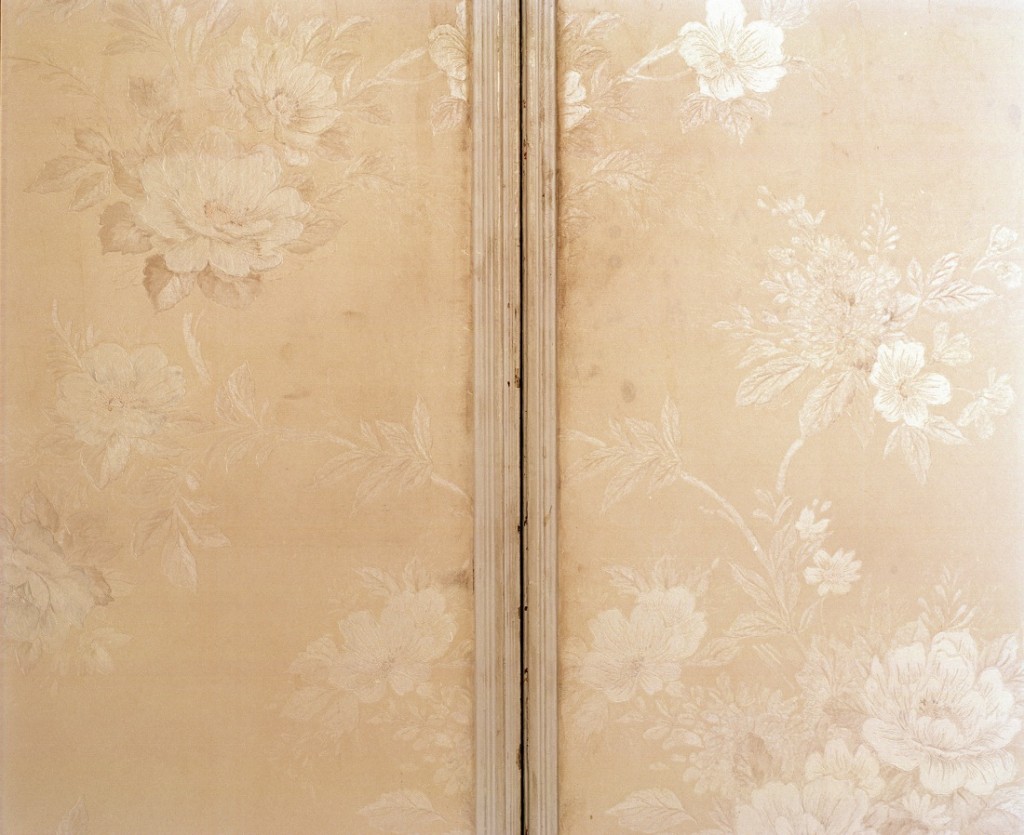
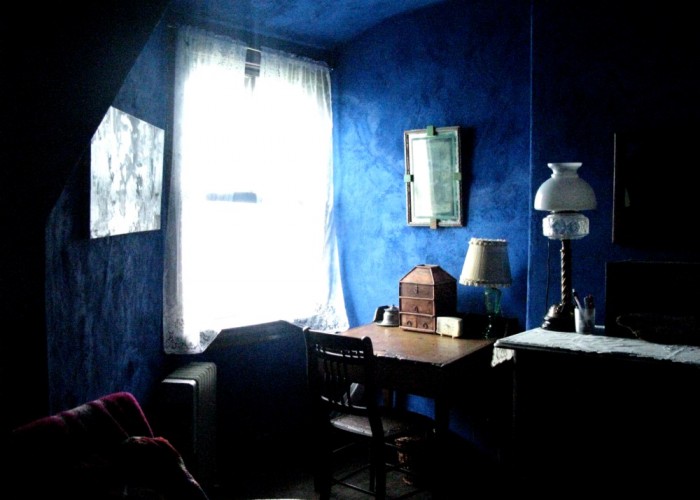
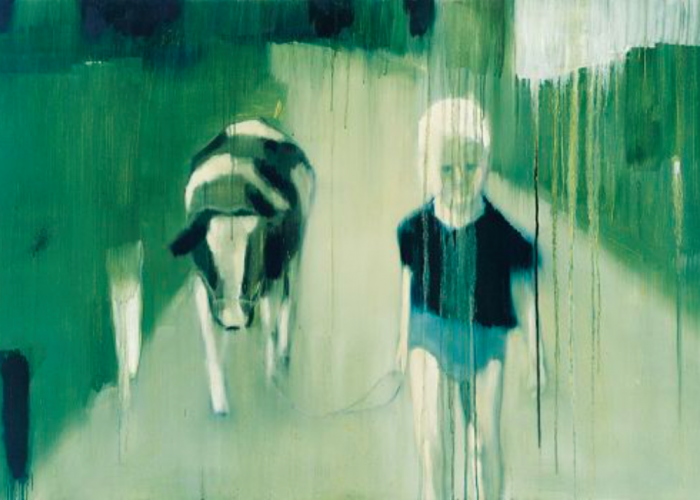
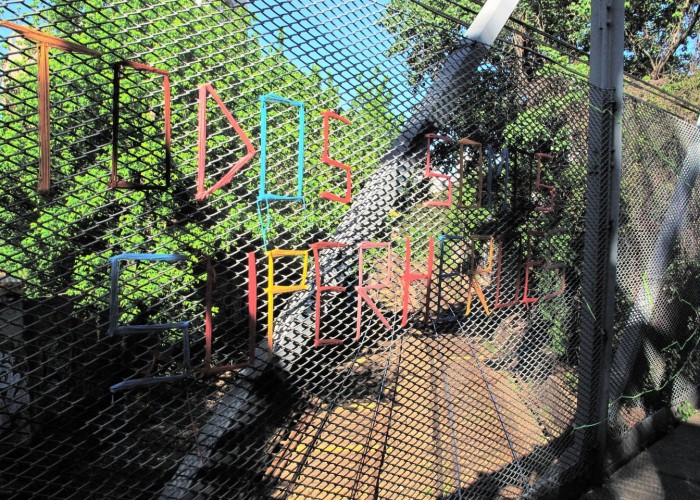
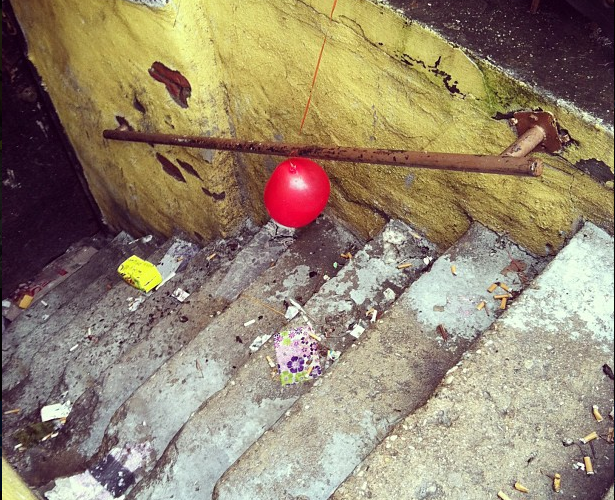



 sending...
sending...